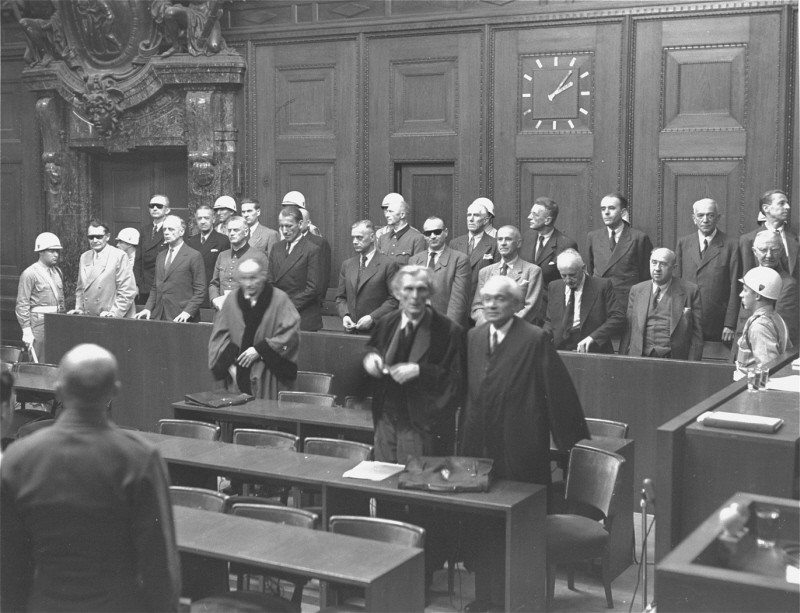
Rudolf Hess
In the immediate aftermath of the Holocaust, the world was faced with a challenge—how to hold individually accountable those German leaders who were responsible for the commission of monstrous crimes against humanity and international peace. The International Military Tribunal (IMT) held in Nuremberg, Germany, attempted to face this immense challenge. On October 18, 1945, the chief prosecutors of the IMT brought charges against 24 leading German officials, among them Rudolf Hess.
Rudolf Hess (1894–1987) was a longstanding personal aide to Adolf Hitler, and deputy party leader of the Nazi Party until 1941.
In May 1941, Hess flew to Scotland hoping to make peace between Germany and Britain. He was immediately arrested and imprisoned.
Hess was found guilty on counts one (conspiracy) and two (crimes against peace) and sentenced to life imprisonment. Hess was the only one of the defendants to serve the full life term; he committed suicide in prison at age 93.
Critical Thinking Questions
Explore how challenges to ethical behavior and leadership played out in the context of the Holocaust. How do these challenges confront us today?
What pressures and motivations may have affected Hess's choices before and during the war?

